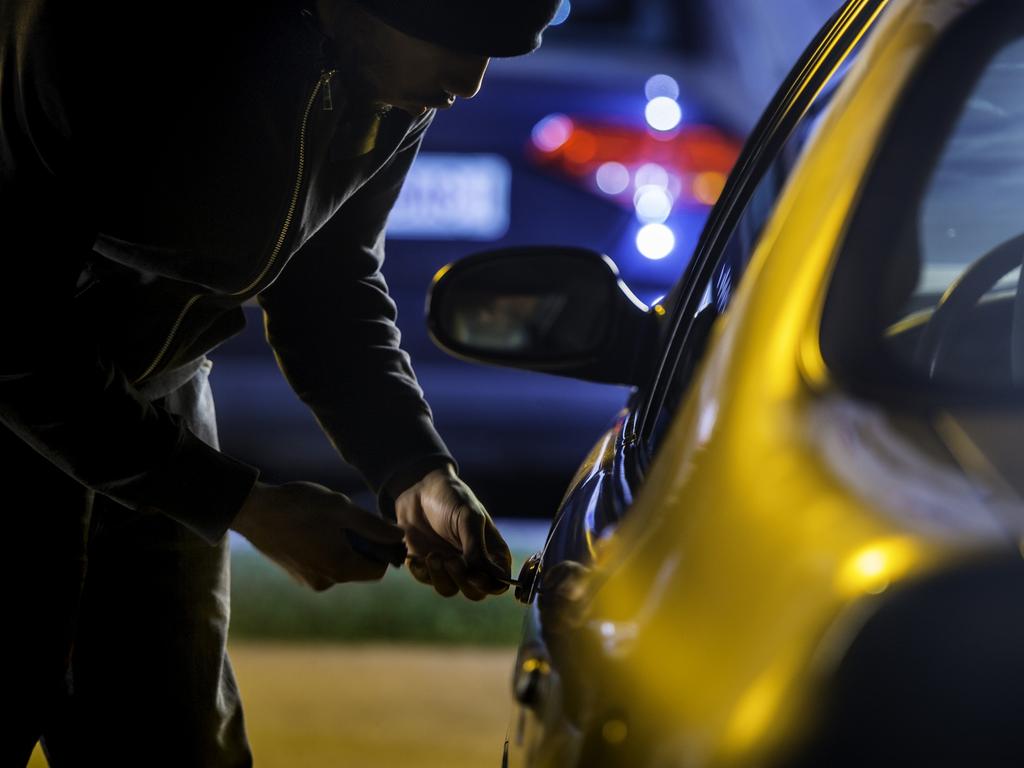Car-theft deterrent leads to house invasions with drivers warned to hide their keys
In 2001 an anti-theft security device was made mandatory in new cars that led to a decrease in vehicle theft, but it has created another problem.
A transponder that renders a vehicle useless when the key is not in the ignition is behind juveniles invading homes to steal a set of wheels, a leading motoring group has warned.
The transponder, or chip, is within the key’s casing and has led to a dramatic decrease in the number of vehicle thefts since it was made mandatory in all new cars built in Australia in 2001.
Without the transponder key in the ignition, it’s impossible to “hot-wire” a vehicle, leading to thieves raiding homes in search of the keys, says a director of the Motor Vehicles Association of Queensland.

If the ignition is turned without the corresponding transponder key, the power is cut to the fuel pump, to the ignition and start circuit, says MTAQ’s remarketing director Peter Dever.
“That’s likely why there are home invasions, whether violent or nonviolent, because thieves need the keys to steal a car,” Mr Dever said.
“Basically, without the key with the transponder, the vehicles are rendered useless.”


According to the National Motor Vehicle Theft Reduction Council (NMVTRC), a vehicle is stolen every 11 minutes in Australia.
About 70 per cent of those cars are stolen with the keys, which the NMVTRC refers to as “sneak thefts”, and half of all vehicles stolen are taken from private homes, including driveways, carports and garages.
Their latest report on Queensland car thefts shows more than half of the vehicles stolen (51 per cent) are used in another crime before being recovered compared with about a third (35 per cent) of those stolen in Victoria.
NMVTRC chief executive Geoff Hughes said the term home invasion had a violent connotation when in 95 per cent of incidents there was no confrontation with the homeowner.
He said the immobiliser chip was made mandatory in all new cars sold in Australia in 2001, although it took another decade before “sneak thefts”, where keys were stolen from inside homes, became common.

“We term them as sneak thefts and it was a term phrased by the WA police in 2013 when this phenomenon was first recognised, but it’s the predominant mode of theft,” Mr Hughes said.
“They are looking to get in and out and grab the keys from an easily accessible location like a key hook by the door.”
He said the introduction of transponders had “an overwhelmingly positive benefit”, and vehicle thefts had fallen more than 60 per cent.
Transponders transmit a low-level signal using a radio frequency identification that the receiving device must detect before starting and is similar to what is used to open remote garages and gates.
“It’s also removed a whole stratum of criminals who would hot-wire a vehicle in a street but were not prepared to go to the initial step of entering your home to get your car,” he said.

The Queensland Government Crime Report, released this year, shows the proportion of child offenders for unlawful use of motor vehicles has almost doubled in a decade and risen from last to fourth on a table of the most prevalent offences.
During 2010-11, the offence of unlawful use of motor vehicles among child offenders was 4.4 per cent, and it has now jumped to 8.6 per cent.
At the same time, unlawful entry among child offences rose from 12.8 per cent (2010-11) to 14 per cent (2019-20).
The latest data comes as three teens were charged with serious offences following an alleged home invasion at Coorparoo.
Police allege the teens had demanded that car keys be handed over.

MTAQ chief Rod Camm said when the technology was introduced it gave people confidence that their car could not be stolen, but thieves had adapted their tactics.
He said vehicle owners needed to be vigilant and keep doors locked at night and keys out of sight from windows.
“It was fantastic technology and people were confident their car could not be stolen even if they left it open, but criminals have adapted and know they need the keys,” he said.
“I’m not sure if everyone is forever mindful that they need to lock doors at night and keep their keys out of sight.
“If a thief can see your car keys on the kitchen bench, then they are likely to have a crack at stealing them.”
The RACQ declined to comment.




